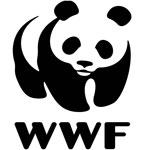Opportunities & Challenges for Businesses to drive Nature positive Recovery and Conserve Biodiversity

This session shares learnings from ‘good practices’ on sustainable agriculture across commodities that have worked and possibilities for scaling out and replication. It also discusses and underlines opportunities for businesses to collaborate with other key stakeholders to contribute towards biodiversity and nature as well as highlight policy and institutional gaps at the national and sub-national level.
Sustainability Education in B-Schools

This session maps the expectations of business sustainability leaders from the B-Schools and discusses how B-school leaders are responding to sustainability education in their respective domains.
Strategy to implement the Circular Economy vision for the IT & Electronics sector in India


This session outlines the “Policy Paper on circular economy in the Electronics and Electrical sector”, published by MeitY. It also discusses the transition pathways and concrete action plan for operationalizing the policy paper.
BRIDGING THE GAP - SDGs, Informal Work & Priority action agenda


This session is a part of the Women in Value Chains Working Group and explores the existing good practices and experiences of engaging with workers in the informal sector. It seeks to develop an action agenda that delivers on the SDG commitments while focusing on the informal sector.
Role of Voluntary Sustainability Standards (VSS) in post COVID19 Recovery

This session draws lessons for India from global experiences of VSS Organisations’ contribution to SDGs. The session also discussed perspectives of VSS Organisations on synergies with policies and Government programmes/initiatives in India.
Multistakeholder dialogue on sustainable Sugar Supply Chain

This session is a conversation starter between major stakeholders associated with the sugar supply chain in India. Sharing of opinion and understanding of the existing issues/ challenges and the way forward with respect to the small farmers and migrant cane cutters/ mill workers will be the focus of this proposed session.
Guiding Principles for Credible Sustainability Systems: ISEAL Credibility Principles v2

This session discusses credible practices for sustainability systems while also seeking to elaborate the implications of credible practices in the Indian context.
Dismantling the Barriers: Enabling Women-Led Enterprises to Access Global Value Chains





This panel seeks to initiate a conversation at the policy and practice level to promote inclusive and diverse supply chains to encourage women-led businesses.
Challenges and opportunities to promoting SDGs in the Gems and Jewellery sector in India

This session highlights the impact of the Covid 19 pandemic on the sector while discussing growth pathways by better aligning to SDGs. The session also identified priority areas that require interventions in public policy, business strategies and ecosystem services (financing, skilling, logistics etc.) while highlighting collaborations amongst various stakeholders to facilitate more action on SDGs.
Launch of FOLU India Action Coalition for Responsible Sourcing & Trade of Commodities





The Coalition for Responsible Sourcing and Trade of Commodities is launched at this session with representatives from the Coalition members, CRB, WRI, FOLU, WWF and IDH.
Driving behaviour change with consumer sustainability information

This session examines consumer behaviour change towards sustainable enterprise/products in the context of local socio-economic, demographic and cultural considerations. It also identifies factors that could complement the Guidelines to help enterprises meet changing consumer preferences and highlights the role that Youth Organisations and Networks can play in driving consumer behaviour change.
Resource Efficiency and Climate Change: material efficiency strategies and untapped climate solutions for business

This session seeks to examine how material efficiency strategies can boost business’ climate and economic benefits. It also discusses how businesses can innovate their business models to enhance material efficiency.
Modern Slavery and the Governance of Global Value Chains





This session discusses and fosters a better understanding of the role of law, regulation, governance and policies in the organisation and operation of global value chains (GVCs), as reflected in due diligence and related legislations. It also explores the complexities of modern slavery in GVCs through diverse case studies that reveal dynamics and limitations of GVC governance.

